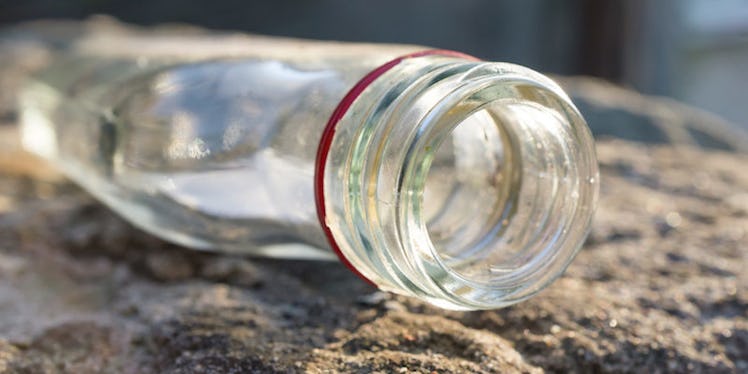
The Barbados Alcohol Epidemic No One Is Talking About
The issue of alcohol addiction has reared its ugly head in my community. A former coworker of mine succumbed to this disease just last week.
I was emotionally crushed when I heard of Tyson’s death. How could this happen?
Quite simply, this habit of imbibing alcohol is a form of social acceptance, especially for men. You're not "manly" if you can’t pound a Johnnie Walker or Mount Gay Silver.
This adult form of peer pressure is so dated. Why can’t these men see what they are doing to their bodies?
Here in Barbados, there is a rum shop in every district. This drinking fetish is a regular past time for a lot of men. And this trend increases at Crop Over, one of our major festivals.
In my opinion, most Caribbean men resort to these public celebrations to escape the realities of life. But it begs the question: Is this practice really benefitting them in the long run?
Personally, I detest the taste of rum or whiskey. I ask myself regularly, “How do men enjoy these beverages?” Does regular attendance at drinking holes create an affinity for bad tasting liquor? Why can’t men consume coffee or lemonade instead?
Another dimension to alcohol abuse I would like to explore is the theme of education vs. common sense. Most of us know that alcohol abuse can result in cirrhosis of the liver. Rum consumption can also lead to the development of diabetes.
Sugar is one of the main ingredients of this popular drink. A simple search on Google can provide us with the knowledge of the detrimental side effects of alcohol.
On the other hand, as the old people would say, common sense is not very common. Most of us want to live long, healthy lives. Common sense should dictate that as an individual, you should avoid smoking, excessive drinking and other activities that could shorten your life span.
Unfortunately, addiction is such a powerful element that it can curtail the desire to do the right thing. Addiction therefore creates a huge divide between knowing what to do, and actually carrying out the necessary action.
For example, I have an uncle who was a previous employee at a paint firm. My uncle Peter lost his job as a result of his alcohol binging. How did he lose his job?
The very same “friends” he would go drinking with at lunchtime went back, and told the boss Peter was drinking on the job.
To this day, Peter has never recovered, and he is still an alcoholic. He is now in his 70s. He has no desire to bathe.
His son has had to take on this responsibility and cash his pension checks for him. Otherwise, he would spend all of his money on rum.
His estranged wife takes food to him, as he is not mentally capable of lighting a stove and cooking a meal from scratch. Most of his adult years have been wasted on alcohol addiction.
Tyson’s case is completely different. Tyson was highly intelligent. He had the gift of the gab. When I was a new employee 27 years ago, Tyson made me feel very welcome. He was always a gentleman.
A few years ago, Tyson was involved in a vehicular accident. He damaged the retina of one of his eyes. He was forced to retire, as he was medically unfit.
Tyson suffered from high blood pressure. He refused to take his medication, but he still found time to drink with the guys.
Unfortunately, last weekend, this habit caused his blood pressure to spike, and he was admitted to the hospital in a coma.
One of my close friends visited him on Monday. She said that he was unresponsive, and his pressure was really high.
Tyson died on Tuesday night. I couldn’t believe it.
Last month, Tyson visited the office and was in high spirits. He looked well. Today, he is gone.
All I can say is that I hope that people who read this story will take heed. Alcohol is just as dangerous as cigarettes. Would manufactures have to place caution labels on the bottles for people to wise up?